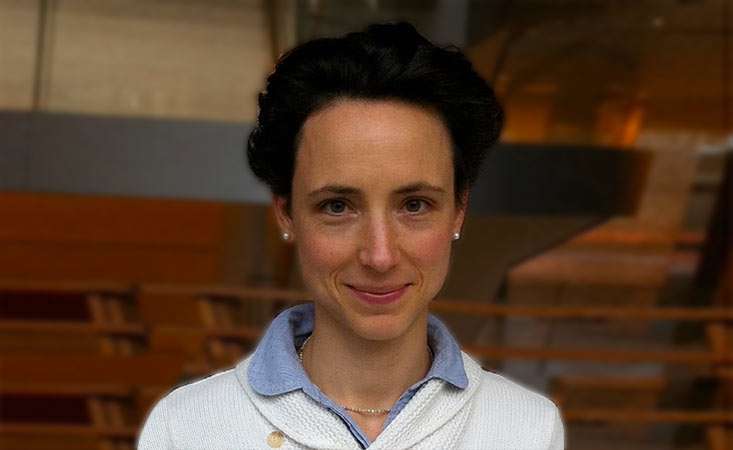
Daria Esterházy, PhD
Editor’s note: We recently announced the recipients of the Pancreatic Cancer Action Network’s (PanCAN) 2020 research grants. Now we’d like to introduce you to each grantee to share what brought them to the field of pancreatic cancer research and what this funding means to them.
Daria Esterházy, PhD, did not expect to be homeschooling her 2nd- and 5th-grade children this year. But, due to the coronavirus disease pandemic and the necessity for distance learning, she’s taken on the task.
And when they work on their science lessons, Esterházy already has a plan: an “intense unit” on the digestive system and its diseases.
Esterházy, who was drawn to science because of curiosity for the unknown, described having a longstanding interest in the pancreas.
Her PhD work focused on diabetes, and she moved on to the immune system in the gut during her postdoctoral training.
“It remained on my radar that the pancreas is a crucial part of the digestive system,” she said.
“We discovered that the upper small intestine has a very particular immune system – it is by default immunosuppressive, which means it actively prevents inflammation and killing by the immune system – and that is exactly what can permit cancers to go unleashed and prevents the effectiveness of many immunotherapy approaches.”
Esterházy and her colleagues realized that this part of the gut drains to the same lymph nodes as the pancreas. This led her to focus on how the intestine influences the pancreatic immune system when she launched her own lab at the University of Chicago.
A better understanding of how the immune system functions in the context of pancreatic cancer can lead to more effective immunotherapy approaches in the future. “The idea is we activate the pancreatic immune system through the gut and thereby allow for the immune system to kill the pancreatic cancer cells,” she said.
This work will be able to move forward thanks to a PanCAN Career Development Award. “Finding out we were selected for this grant was one of the scientific highlights of this otherwise very difficult year for research,” Esterházy said.
And the grant doesn’t just impact her. Thanks to her Career Development Award, Esterházy was able to hire a new postdoctoral fellow devoted to the project.
“The PanCAN grant came at a crucial moment – the university imposed a hiring freeze on all labs, with the exception of personnel that was covered by grants,” she explained.
“Essentially the PanCAN grant allowed us to hire a postdoc that otherwise we could not have hired – and the project would have been in severe peril.”
Esterházy recognizes that looking at the immune system and inflammation within the pancreas through the lens of the small intestine is a nontraditional strategy – and she is grateful to PanCAN and its scientific reviewers for awarding her this grant.
“I deeply appreciated the faith that was put in me. Not all organizations recognize the merits of supporting investigators who do not have years of experience in the field.”
She added, “Supporting pancreatic cancer research takes courage, and donors join the scientists in this. The more diverse the approaches scientists take, the sooner we’ll have answers – but it takes patience.”















